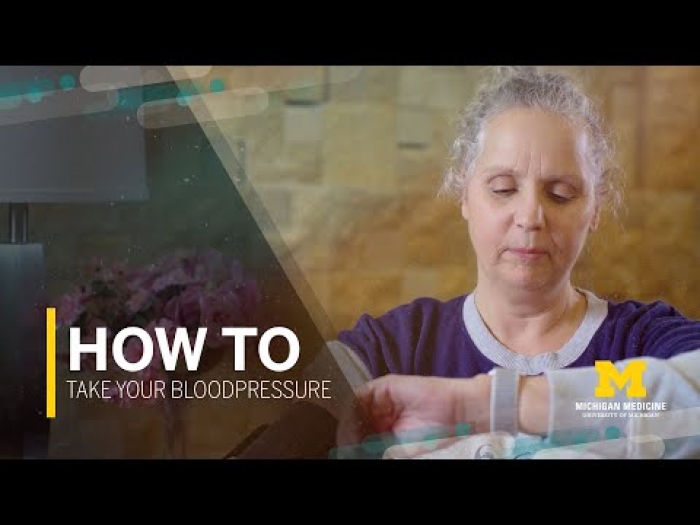Research suggests these antibodies may be present in seemingly healthy people, increasing their risk of a heart attack or stroke over time.
5:00 AM
Author |

While antibodies normally help fight off infections, “autoantibodies” contribute to autoimmune diseases by recognizing and attacking a person’s own body. Patients with autoimmune diseases have long been known to develop, among other problems, cardiovascular events such as heart attacks and strokes.
It has recently been recognized that many healthy people, despite not having any signs or symptoms of an autoimmune disease diagnosis, still have detectable autoantibodies in their blood. Although many of those individuals will not be diagnosed with an autoimmune disease in their lifetime, it is unknown whether the autoantibodies may still cause some problems, such as increasing the risk of the aforementioned cardiovascular events.
Antiphospholipid syndrome, also known as APS, is an autoimmune disease in which autoantibodies called “antiphospholipid antibodies” cause dangerous blood clots to form in the body. Patients with this syndrome are, therefore, at a significantly higher risk of heart attacks, strokes, and other events caused by blood clots. It has not though been deeply investigated how often these antiphospholipid antibodies can be detected in seemingly healthy individuals, and whether they have an impact on future health.
A team of Michigan Medicine researchers led by Ray Zuo, M.D., lead author of the paper and assistant professor of medicine in the Division of Rheumatology at Michigan Medicine, and Jason Knight, M.D., Ph.D., co-corresponding author of the paper and an associate professor of medicine at Michigan Medicine, worked in collaboration with James de Lemos, M.D., corresponding author, principal investigator of the Dallas Heart Study, professor, and chief of cardiology at UT Southwestern Medical, and found through their research that various types of antiphospholipid antibodies are not only detectable in some healthy people but may also contribute to the development of future cardiovascular events.
For this study, the team analyzed the blood of 2,400 ethnically diverse healthy individuals, which had been previously collected as part of a longitudinal population-based study known as the Dallas Heart Study. Eight different varieties of antiphospholipid antibodies were measured. To the team’s surprise, 15% of these healthy individuals had at least one type of antiphospholipid antibody in their blood. The individuals were then followed for an average of eight years, where it was found that positive testing for two of the antiphospholipid antibodies in particular (anti-cardiolipin IgA and anti-β2 glycoprotein I IgA) predicted the development of a cardiovascular event such as heart attack, stroke, or death from heart disease.
“While we have always wondered how common it is for healthy people to have antiphospholipid antibodies in their blood, a study of the scale needed to answer this question had not been previously performed,” said Zuo. “Collaborating with the Dallas Heart Study allowed us to tackle this question in an ethnically diverse healthy population.”
While it is well known that autoimmune diseases such as lupus are more often diagnosed in Black individuals as compared with their White counterparts, the impact of race and ethnicity on the presence of antiphospholipid antibodies in the general population has not been systematically studied. The team found that the prevalence of antiphospholipid antibodies is comparable among Black, white and Hispanic individuals.
“Enrollment in APS clinical trials often skews toward White patients, with it sometimes being suggested that antiphospholipid antibodies are simply not as common in other racial and ethnical groups,” said Knight. “Our findings certainly dispute that suggestion and point to the need for robust efforts to ensure that all relevant groups are represented in future APS research.”
The team also examined some potential mechanisms by which the detected antiphospholipid antibodies might be promoting cardiovascular problems. They found an association between the presence of anti-cardiolipin IgA and anti-β2 glycoprotein I IgA and an impaired ability for “good cholesterol” such as HDL, to do its job of clearing out bad types of cholesterol. In the laboratory, the researchers also showed that the Dallas Heart blood samples with positive antiphospholipid antibody testing more strongly activated cells called endothelial cells that line blood vessels. If this were to happen in the body, it could allow blood clots to form more easily.
Although not a part of this study, recent research by the Michigan Medicine team and others has shown that severe COVID-19 can trigger the production of various antiphospholipid antibodies in some people. “Although we don’t know how often such autoantibodies will persist after the COVID infection has cleared, the findings from the Dallas Heart Study probably give us yet another reason to keep an eye on the long-term cardiovascular consequences of COVID-19,” said Knight.
“Our data suggest that some antiphospholipid antibodies may be important risk-enhancers and, if confirmed by other studies, could inform more personalized approaches for preventing the sometimes deadly events caused by cardiovascular disease,” said Zuo. “The goal would be to identify who is at the highest risk and get them on some preventative treatment before something bad actually happens.”
The Dallas Heart Study is a population-based cohort study that, since 2000, has tracked the health of thousands of people of various races and ethnicities to improve the diagnosis, prevention, and treatment of heart disease.
“The Dallas heart study is an extraordinary resource at UT Southwestern,” said de Lemos. “Heart disease remains the No.1 killer in the U.S. This important collaboration with researchers from Michigan Medicine provided evidence that, beyond risk factors that we already know about, such as diabetes, high blood pressure, and high cholesterol, autoantibodies may also contribute to the development of cardiovascular disease in seemingly healthy people.”
Additional authors: Yu Zuo, MD; Sherwin Navaz, BS; Wenying Liang, PhD; Chun Li, MD; Colby R. Aysers, MS; Christine E. Rysenga, BS; Alyssa Harbaugh, BS; Gary L. Norman, PhD; E. Blair Solow, MD; Bonnie Bermas, MD; Oludamilola Akinmolayemi, MD; Anand Rohatgi, MD; David R. karp, MD, PhD; Jason S. Knight, MD, PhD; Hames A. de Lemos, MD.
Funding: Pfizer Aspire Award, National Institute of Arthritis and Musculoskeletal and Skin Diseases, the Rheumatology Research Foundation, Arthritis National Research Foundation
Paper cited: “Prevalence of Antiphospholipid Antibodies and Association with Incident Cardiovascular Events,” Jama Network. DOI: 10.1001/jamanetworkopen.2023.6530

Explore a variety of health care news & stories by visiting the Health Lab home page for more articles.

Department of Communication at Michigan Medicine
Want top health & research news weekly? Sign up for Health Lab’s newsletters today!





